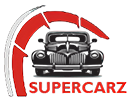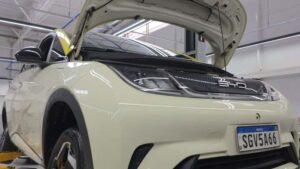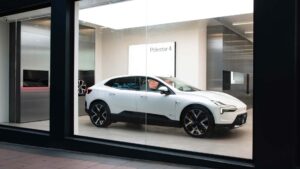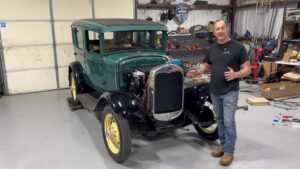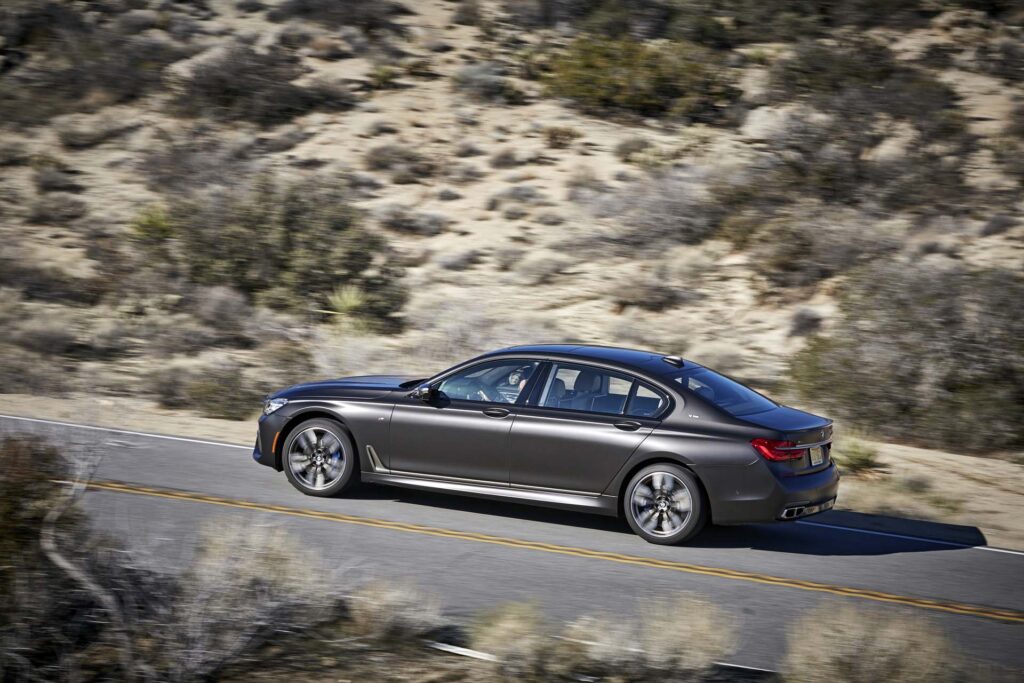
The 2018 BMW 7-Series is motivated by a broad spectrum of powertrains, perhaps one of the largest spreads for any sedan on sale.
Its most efficient version is powered by a turbo-4 and a battery pack, its most powerful version is powered by a turbo-12 and your courage.
Every stop along the way, it’s a buttery soft ride, aided by BMW’s excellent 8-speed automatic transmission. We give it a surprising 8 out of 10 on our performance scale. Why? Performance isn’t the 7-Series’ mission, yet it’s still way above average. (Read more about how we rate cars.)
Most versions will be powered by a turbocharged 3.0-liter inline-6 under the hoods of 740i models. That engine makes 320 horsepower and 330 pound-feet of torque and can power the rear or all four wheels when equipped with all-wheel drive, which is optional.
Compared to previous generations, the new BMW 740i is about 120 pounds lighter thanks to weight savings in the chassis. The result is a confident feeling behind the wheel of 740i models; it rarely feels out of breath.
The next step up is a step down to fewer cylinders, as it were. The 740e pairs a turbo-4 and a 9.2-kwh battery for a total system output of 322 hp. It’s the most efficient way to drive a 7-Series and also the most relaxed. We’ve had significant time behind the wheel of the 740e, and while the presentation and hybrid system seamlessly blend into the experience, it’s burdened by roughly 400 pounds over a comparable 740i and it feels that way. The trade-off is a 23-mile all-electric range in the 740e.
Those looking for a V-8 will find a fine example under the hood of the 750i. The 4.4-liter turbo V-8 makes 445 hp and can power the rear wheels only, or all wheels when optionally equipped with xDrive. Even though V-8s are a traditional pick for full-size buyers, this one feels like an outlier. It’s understandably not as efficient as the hybrid, nor is it strictly necessary; the turbo-6 is just fine. The V-8 isn’t on the top of the performance pyramid, either.
That distinction goes to the turbocharged 6.6-liter V-12 found in the M760i. It makes 601 hp and 590 lb-ft and powers the luxury sled up to 60 mph in less than four seconds. Any more power requires an ALPINA badge and deeper pockets. Our colleagues at Motor Authority have driven the ALPINA B7, read their report here.
Underneath that dizzying array of engines, BMW’s most sophisticated chassis and suspension in a sedan keeps all 7-Series models composed and smoother than a Steely Dan show.
BMW’s Carbon Core construction process, a combination of carbon fiber and composite materials, helps stiffen the chassis of the 7-Series and shed excess weight. All versions, even the base 740i, feel confident behind the wheel and work to iron out fussy roads.
Double wishbones up front and a five-link setup in the rear is complemented by a standard air suspension that dials from Comfort+ to Sport (or sharper in M760i trim) for a customized ride. Comfort+ is the floatiest setting, and while Sport helps shrink the car around the driver, it’s the only setting that will crash the 7-Series over pockmarked roads. We’re convinced it’s not the suspension’s doing—big wheels and low-profile, run-flat tires are famous for that.
Nonetheless, the 7-Series directs, slows, and redirects its motion with ease. The electric power steering is welcome here with a light, direct feel behind the wheel. It can be too quick in sportier modes, but that’s not the 7-Series’ best use anyhow.
